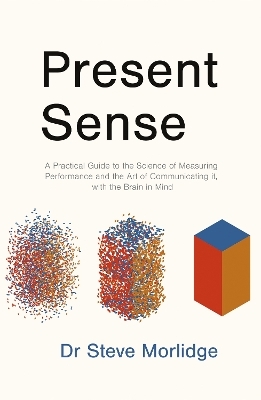
Present Sense
A Practical Guide to the Science of Measuring Performance and the Art of Communicating it, with the Brain in Mind
Seiten
2019
Matador (Verlag)
978-1-83859-109-0 (ISBN)
Matador (Verlag)
978-1-83859-109-0 (ISBN)
In this provocative yet practical guidebook Steve Morlidge demonstrates why the approach and methods of performance reporting that all information professionals have been taught fails, and what we need to do differently to help us make sense of the dynamic, complex and data rich world in which we now live and work.
Reporting on performance should not be treated as worthy but dull, requiring no more than routine comparisons of actual against targets. This traditional approach is based on the false premise organisations can be managed as if they were a simple mechanical system operating in a predictable environment. And the methods associated with it, such as variance analyses and data tables that are used to measure and communicate performance, are completely inadequate.
Instead, Morlidge argues performance reporting should be reconceived as an act of perception conducted on behalf of the organisation, helping to make sense of the sensory inputs (data) that it has at its disposal. And to do so effectively performance reporters need to learn from and exploit the strengths of our own brains, compensate for its weaknesses and communicate in a way that makes it easy for their audience’s brains to assimilate.
Drawing on the latest insights from cognitive science in this book you will learn:
•how to bring a dynamic perspective into performance reporting
•how to deploy a set of simple tools to help speared the signal from the noise inherent in large data sets and to make sound inferences
•how to set goals intelligently
•about the grammar of data visualization and how use it to design powerful and simple reports
In this way information professionals are uniquely charged with the responsibility for creating the shared consciousness that is a prerequisite for organisations to effectively respond and adapt to their environments.
Reporting on performance should not be treated as worthy but dull, requiring no more than routine comparisons of actual against targets. This traditional approach is based on the false premise organisations can be managed as if they were a simple mechanical system operating in a predictable environment. And the methods associated with it, such as variance analyses and data tables that are used to measure and communicate performance, are completely inadequate.
Instead, Morlidge argues performance reporting should be reconceived as an act of perception conducted on behalf of the organisation, helping to make sense of the sensory inputs (data) that it has at its disposal. And to do so effectively performance reporters need to learn from and exploit the strengths of our own brains, compensate for its weaknesses and communicate in a way that makes it easy for their audience’s brains to assimilate.
Drawing on the latest insights from cognitive science in this book you will learn:
•how to bring a dynamic perspective into performance reporting
•how to deploy a set of simple tools to help speared the signal from the noise inherent in large data sets and to make sound inferences
•how to set goals intelligently
•about the grammar of data visualization and how use it to design powerful and simple reports
In this way information professionals are uniquely charged with the responsibility for creating the shared consciousness that is a prerequisite for organisations to effectively respond and adapt to their environments.
| Erscheinungsdatum | 30.09.2019 |
|---|---|
| Sprache | englisch |
| Maße | 210 x 273 mm |
| Themenwelt | Informatik ► Datenbanken ► Data Warehouse / Data Mining |
| Wirtschaft ► Betriebswirtschaft / Management ► Rechnungswesen / Bilanzen | |
| ISBN-10 | 1-83859-109-5 / 1838591095 |
| ISBN-13 | 978-1-83859-109-0 / 9781838591090 |
| Zustand | Neuware |
| Informationen gemäß Produktsicherheitsverordnung (GPSR) | |
| Haben Sie eine Frage zum Produkt? |
Mehr entdecken
aus dem Bereich
aus dem Bereich
Auswertung von Daten mit pandas, NumPy und IPython
Buch | Softcover (2023)
O'Reilly (Verlag)
44,90 €
Datenanalyse für Künstliche Intelligenz
Buch | Softcover (2024)
De Gruyter Oldenbourg (Verlag)
74,95 €


